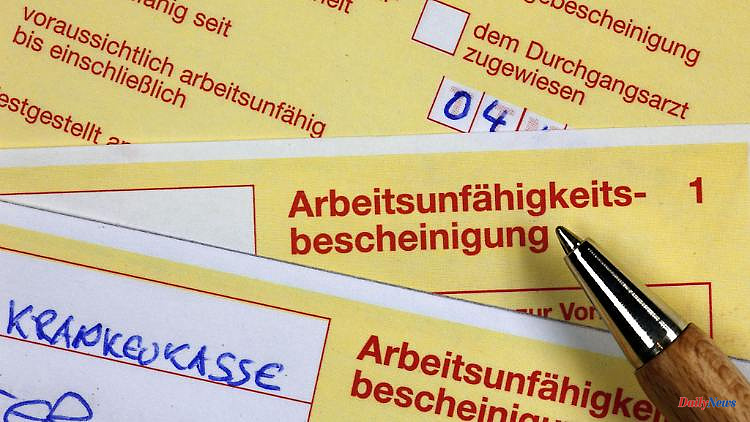Dresden (dpa / sn) - According to evaluations by the health insurance company DAK, employees in Saxony reported sick more often in the first half of the year than in the previous year. The sick leave rose by 0.7 percentage points to 4.8 percent, making it the highest since the beginning of the pandemic, as the health insurance company announced on Monday. Almost every fifth day of absence (19.3 percent) was due to diseases of the respiratory tract. The analysis was based on all sick leave from around 55,000 insured employees.
According to this, there were 861 days of absence for every 100 insured persons - 116 more than in the first half of 2021. Coughs and colds were responsible for 166 days of absence, more than twice as many as in 2021 (71). Losses due to Corona also increased with 76 days of absence per 100 insured persons, the national average was 64. According to DAK state head Christine Enenkel, the highly contagious Omicron variant caused more lost work than any other before. Sick leave by phone must become a permanent solution "to reduce the risk of infection in the doctor's office," she demanded.
The DAK also referred to the significant increase in absenteeism due to mental illness. Absences from work due to depression, stress or anxiety increased by almost half (47 percent) from 2011 to 2021. Their importance for the heart attack risk is often underestimated, said Enenkel. Absences due to mental illness have been increasing for years, and negative stress is a major burden. In the course of an initiated Forsa survey, the DAK sees a cause in the gap between performance and reward. 15 percent of those surveyed did not think their pay was appropriate, just as many expected or experienced a deterioration in their work situation and 13 percent considered the recognition of their bosses to be too meager.












